The green farmhouse at East Grove Farms stands tall and proud. Its yellow accents and cranberry trim lends its façade a regal aspect as it faces the seemingly endless swath of farmland before it. A gentle wind breathes through the fading canopies of nearby trees and rustles the fallen leaves strewn across the lawn. The country air is clean and crisp. Apart from the sounds of the occasional stray car wandering down the gravel road, the sounds of the farm are unassuming and serene.
This is the farm of the Garretson family, and has been since 1837. Already a rich legacy exists, enveloping the many acres in history and lore; but for the last three years a few of the family members have been adding their own signature to that legacy with a new venture. Joel Garretson and his two sons Justin and Kurt founded and operate East Grove Farms, practicing sustainable farming techniques and growing alternative crops, specializing in elderberries.
“A lot of what we do is take ground like you see north of us, old fields, and then revitalize them and get them to grow in a way that makes the ground healthier, so when we’re dead and gone those fields will be in better shape than we found them,” said Kurt. “You’re not losing nutrients, you’re gaining them over the long run.”
Now the three-year-old business is branching out into elderberry wine, which the Garretsons say is a good way to add value to the crop while also providing a way for others to experience the fruit.
“Wine is a good way to preserve the fruits of native Iowa, and bring those flavors to other Iowans,” said Justin.
In addition, they will also be making mead, which the family says is something not many people in Iowa are doing.
Elderberries, for which East Grove Farms is best known, are a fruit with a fairly low sugar content, but not too much acidity. They are not extremely tart or particularly sweet. And what does it taste like? Well, that is difficult to describe.
“It’s like asking somebody what a strawberry tastes like; well, it tastes like a strawberry,” said Kurt. “What’s an elderberry taste like? Well, it tastes like an elderberry. It’s its own distinct thing.”
The berry is also a good fit for the farm because it is a native plant used to Iowan weather.
“It grows all through North America, so it’s used to weird and wacky Iowa winters and summers; cold doesn’t really hurt it, and rain makes it grow better,” said Kurt. “It can survive drought—it doesn’t fruit well during drought, but it won’t kill it off.”
There are a vast array of challenges that come with running a farm and business, and although the Garretsons said applying for a winemaking license and everything that went with it was a difficult and lengthy process, what stands out to them as the most frustrating element of farming is the unpredictable weather of Iowa.
“Basically all of your stress comes from the weather,” said Justin.
Kurt seconded that opinion and added that the hardships of earlier this year are what contributed to their low yield.
“We went from the wettest spring in history to the driest summer in history,” said Kurt. “The water literally just turned off, and we weren’t ready for that. Had we been ready with irrigation, it would have been a lot different yield-wise.”
Despite the challenges that come with farming in Iowa, the Garretsons said those difficulties inspire (and force) them to come up with new ideas.
“We reconsidered how we were going to make elderberry wine and that was an awesome change, so thank you drought, and thank you low yields this year,” said Justin.
The Garretsons compare the deep, purple elderberry wine to a heavy bodied red wine in taste. But, they said, it can be difficult to achieve the perfect balance of flavor.
“You want to make sure you have the distinct flavor of elderberry, but you don’t want it to be overpowering,” said Kurt.
Balance is also key for the sweet meads.
“The key to that is having it be sweet but not syrupy, there are a lot of sweet wines that end up tasting like cough syrup,” said Kurt. “There’s just too much in them, so we try to get that sweetness, but with a lightness—that’s our goal.”
The Garretsons said they are excited for when their wines and meads will be available to the public and hope that they receive a positive reaction from customers.
“Well, the first reaction is, ‘what is that?’ I’ve never seen that on the shelf before,” said Justin. “I don’t believe any of the products we have or that we’re planning to have are being made by anybody commercially—we’re doing our own thing.”
Kurt quickly added, “The second reaction would be, ‘Damn, that’s good!’ That’s our hope.”
Not only does the family enjoy producing fruit, wine, and mead, another favorite aspect of the farm is seeing visitors experience the idyllic setting.
“We enjoy sharing the farm with others,” said Justin. “Getting people out of the city and showing them the country; you can have culture in the country, and be educated and be a farmer.”
The Garretsons feel the farm is exactly where they’re supposed to be.
“We have very deep roots here on this farm; it’s difficult to describe other than a real feeling of home,” said Justin.
That feeling is shared by both brothers.
“I’ve lived in a lot of different places, but they were never home,” said Kurt. “Iowa was always home.”
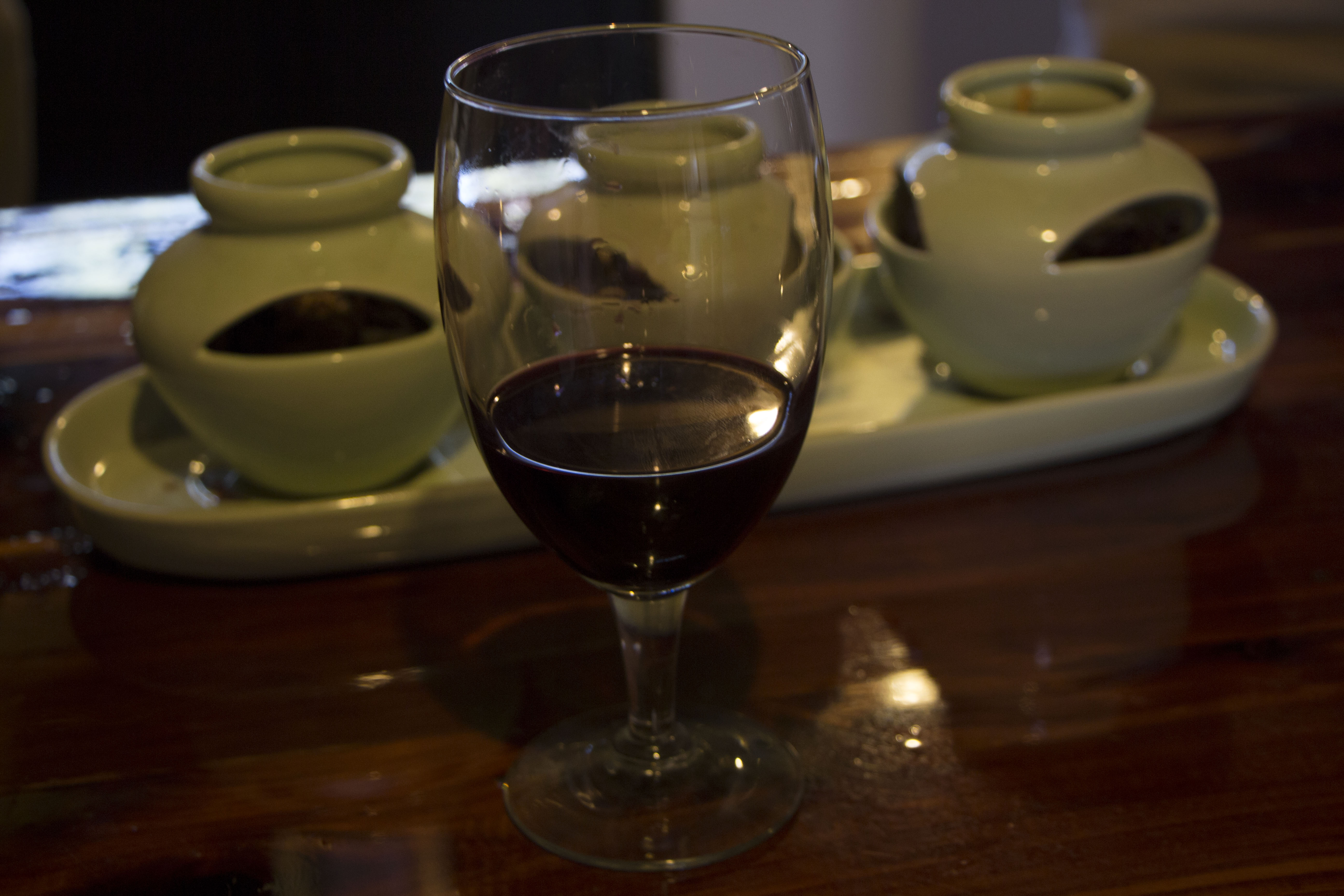

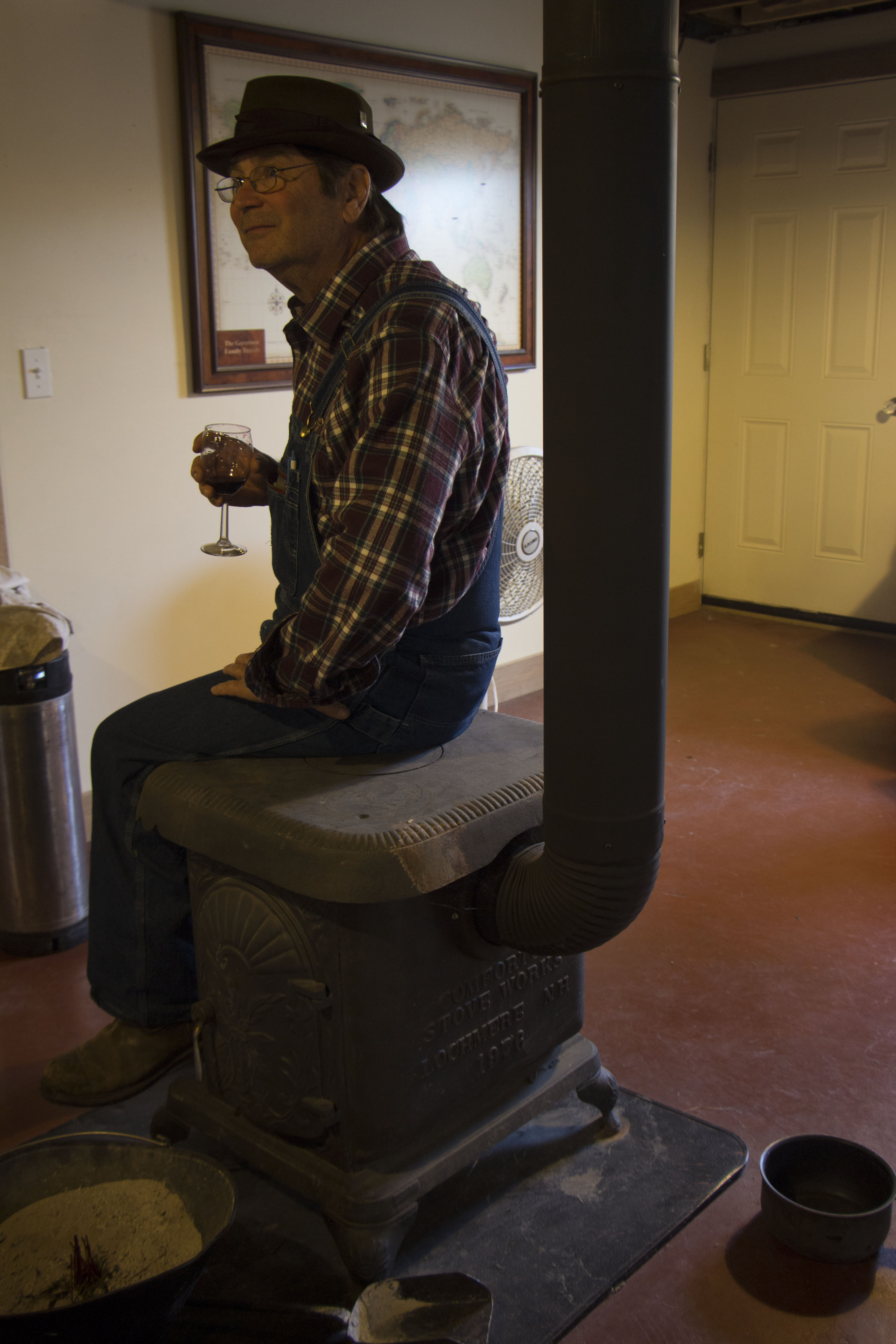
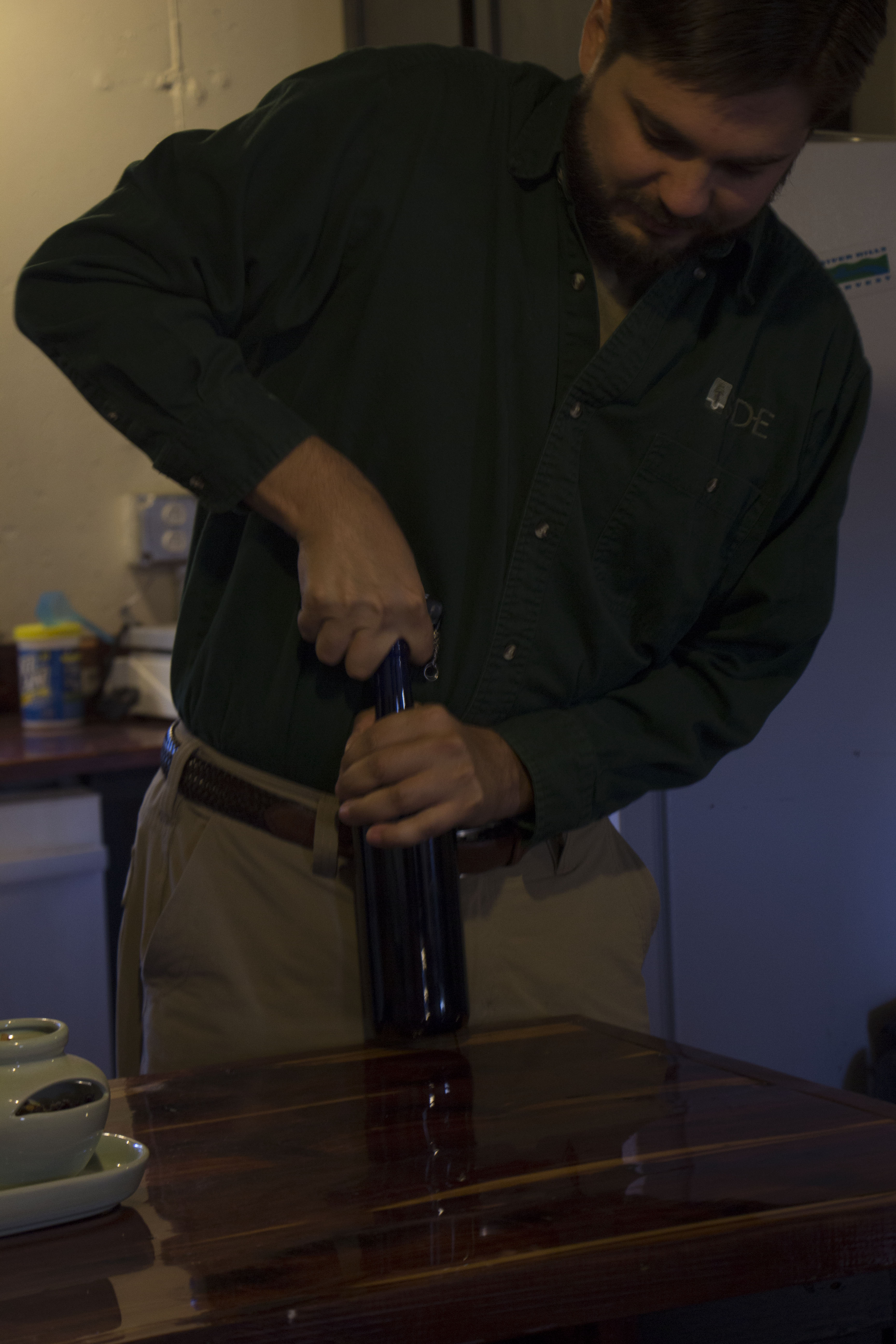
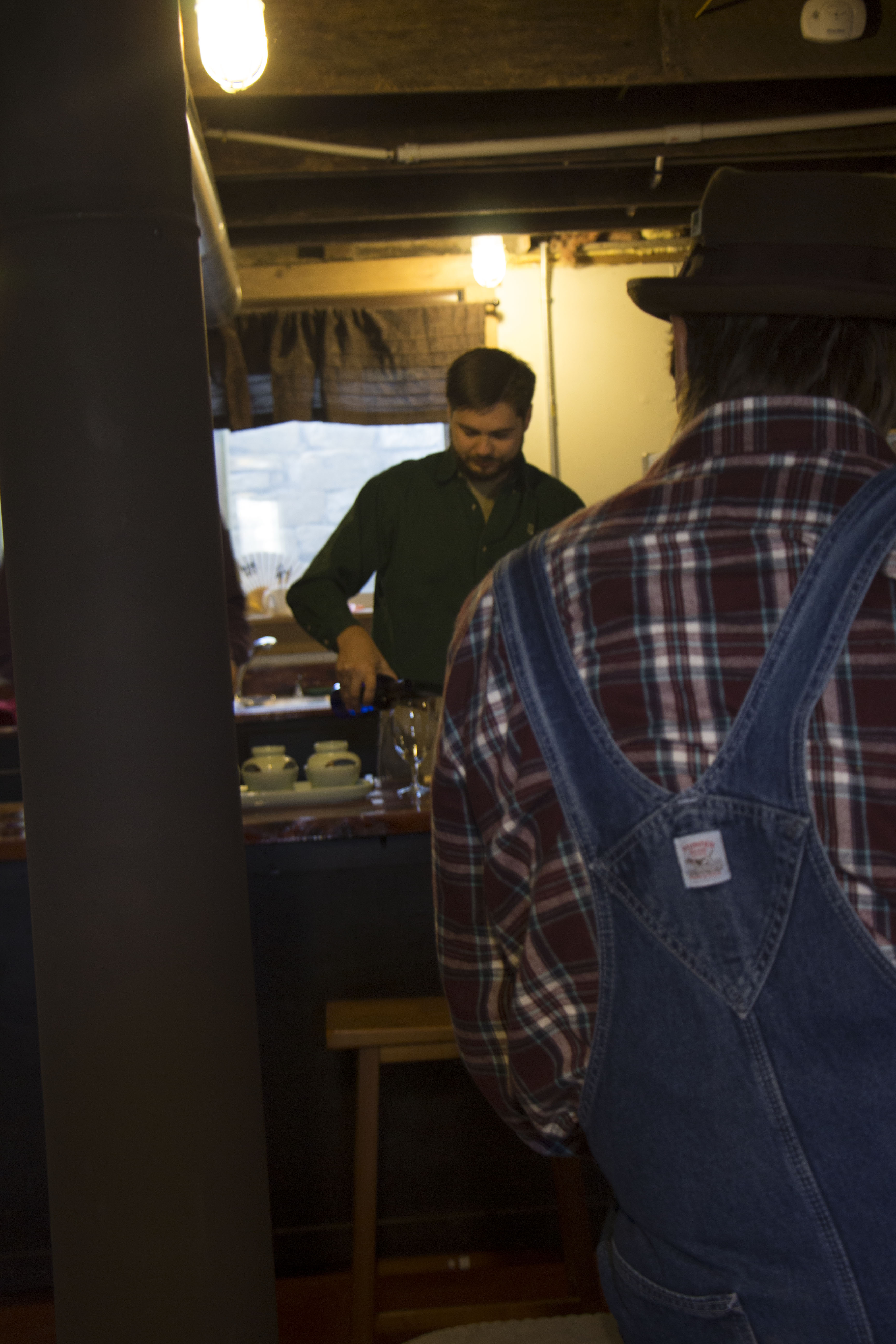
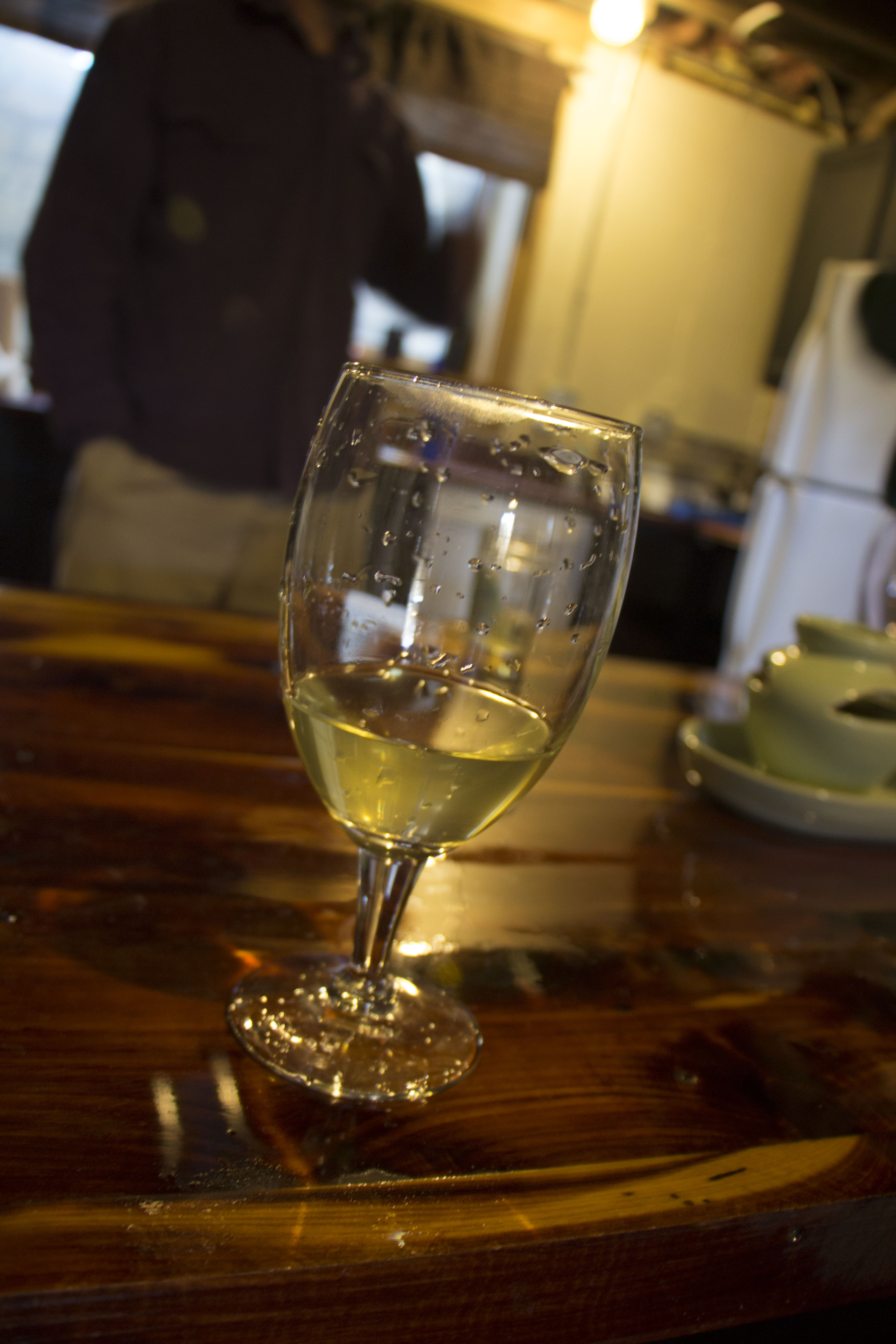
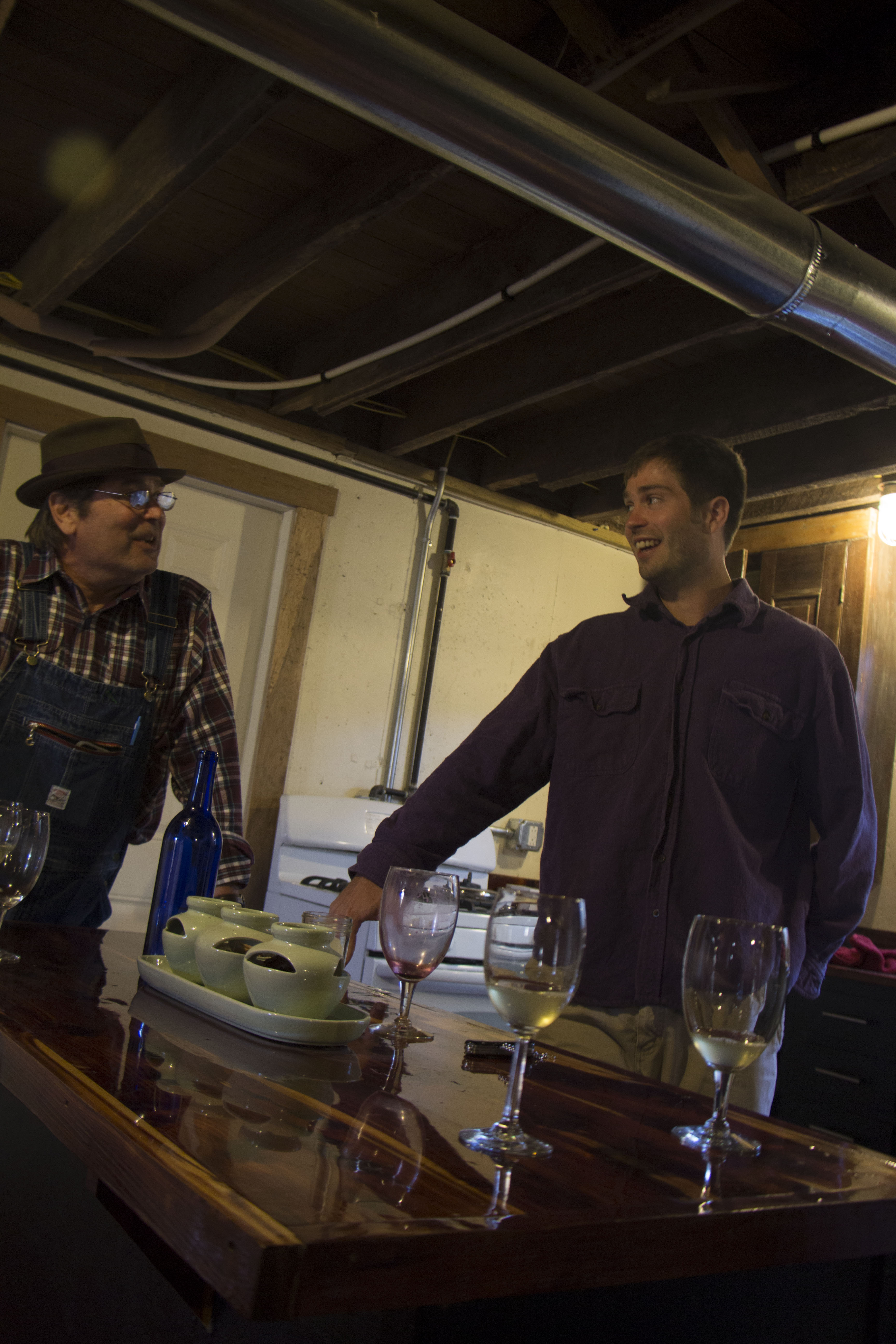
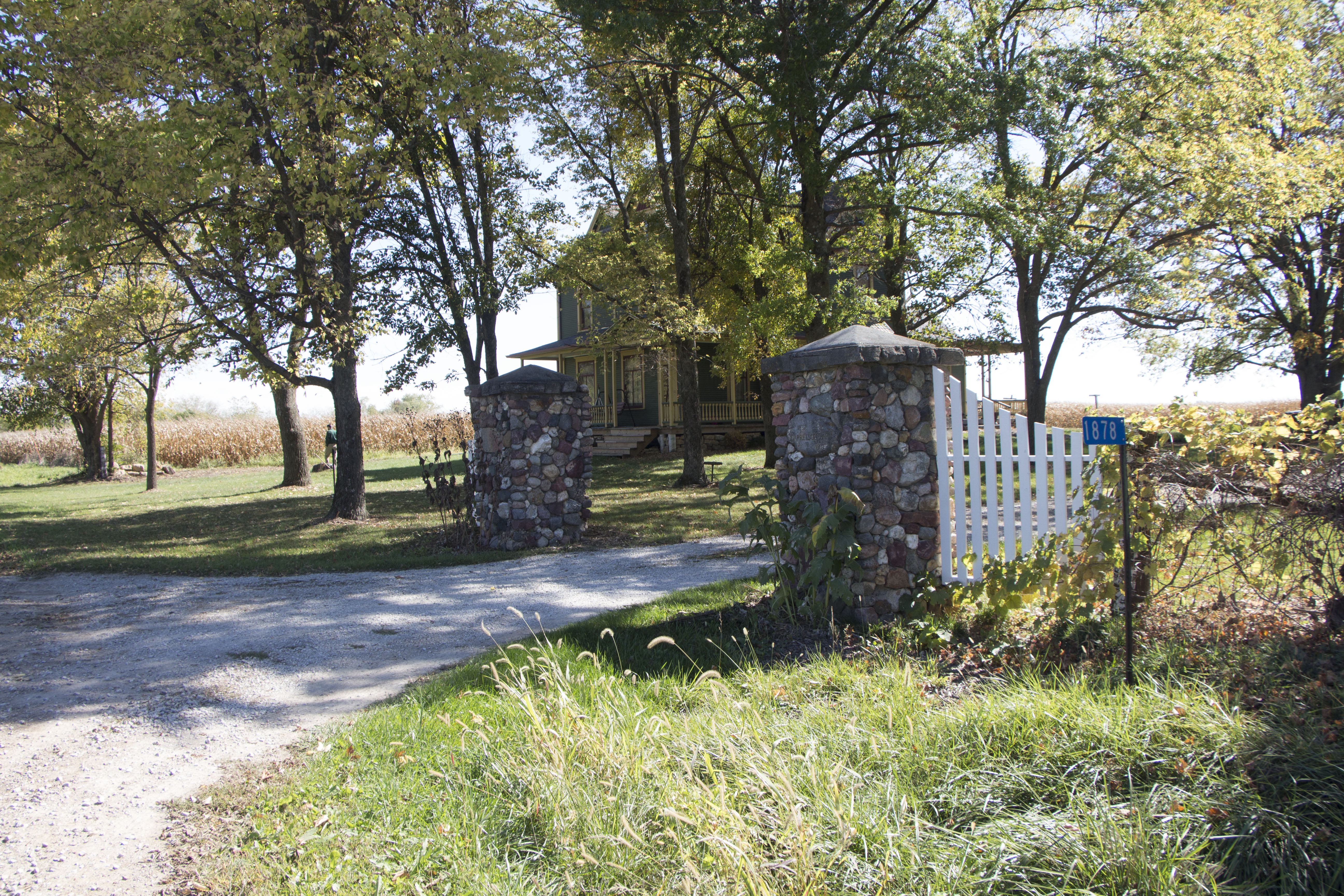
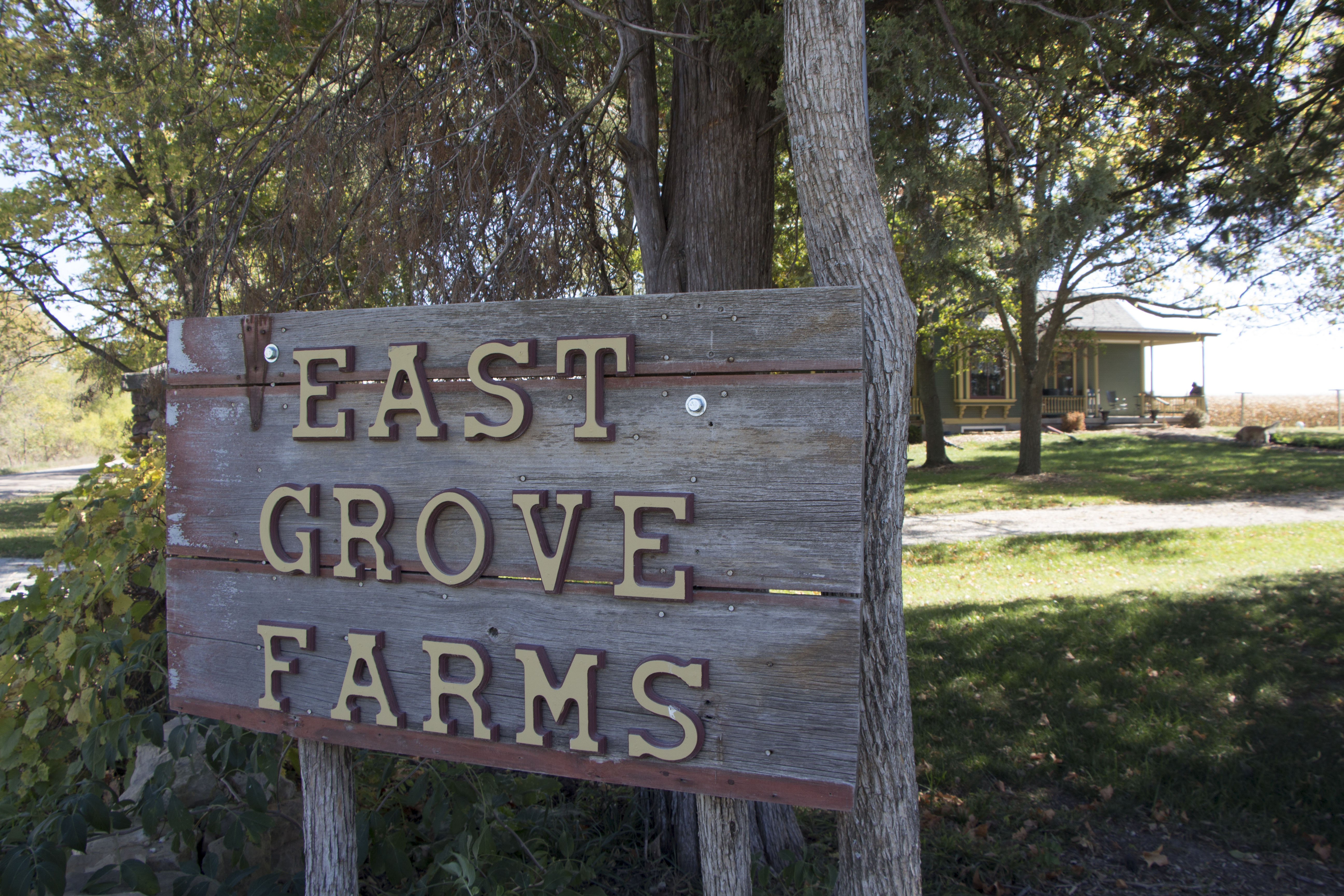

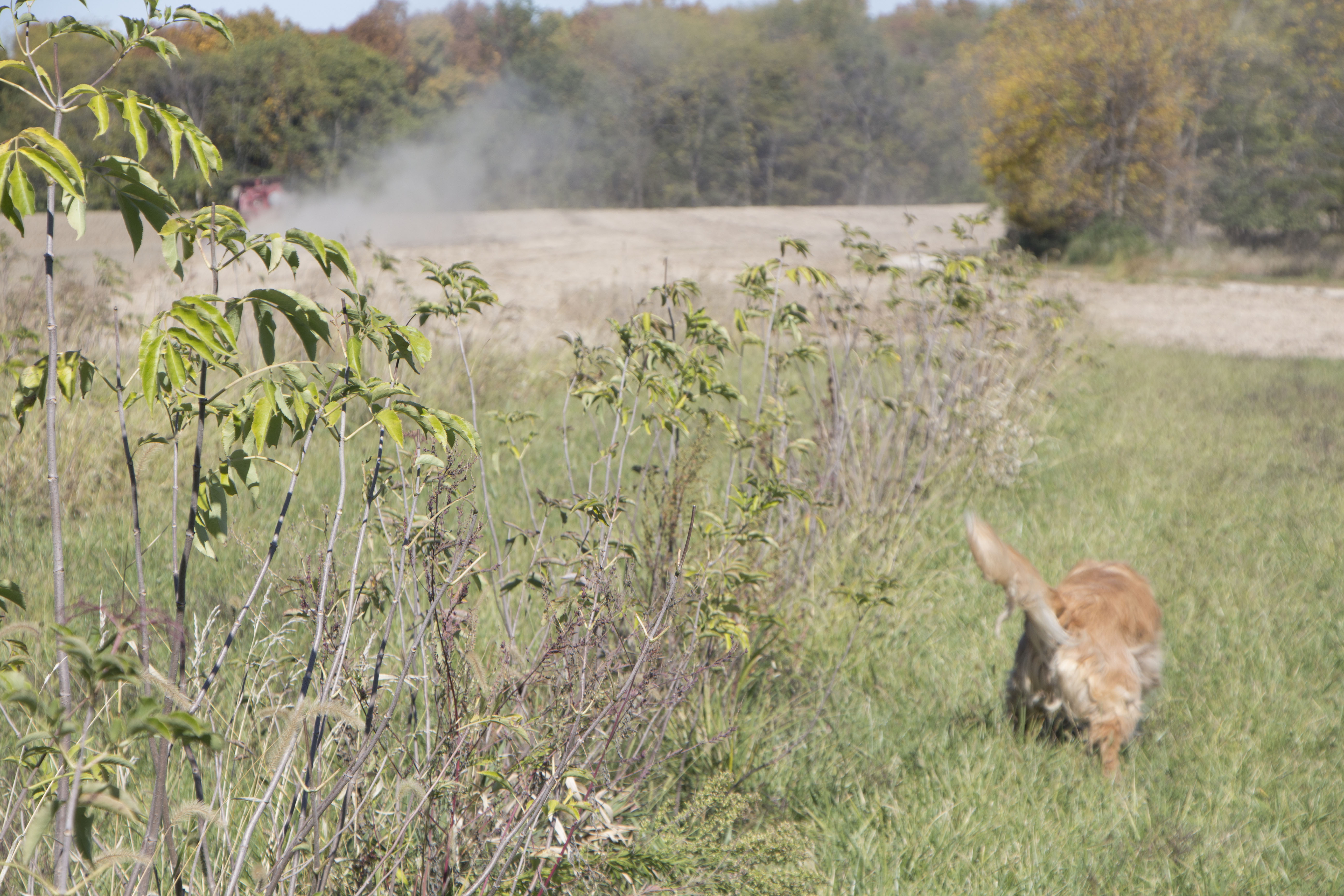


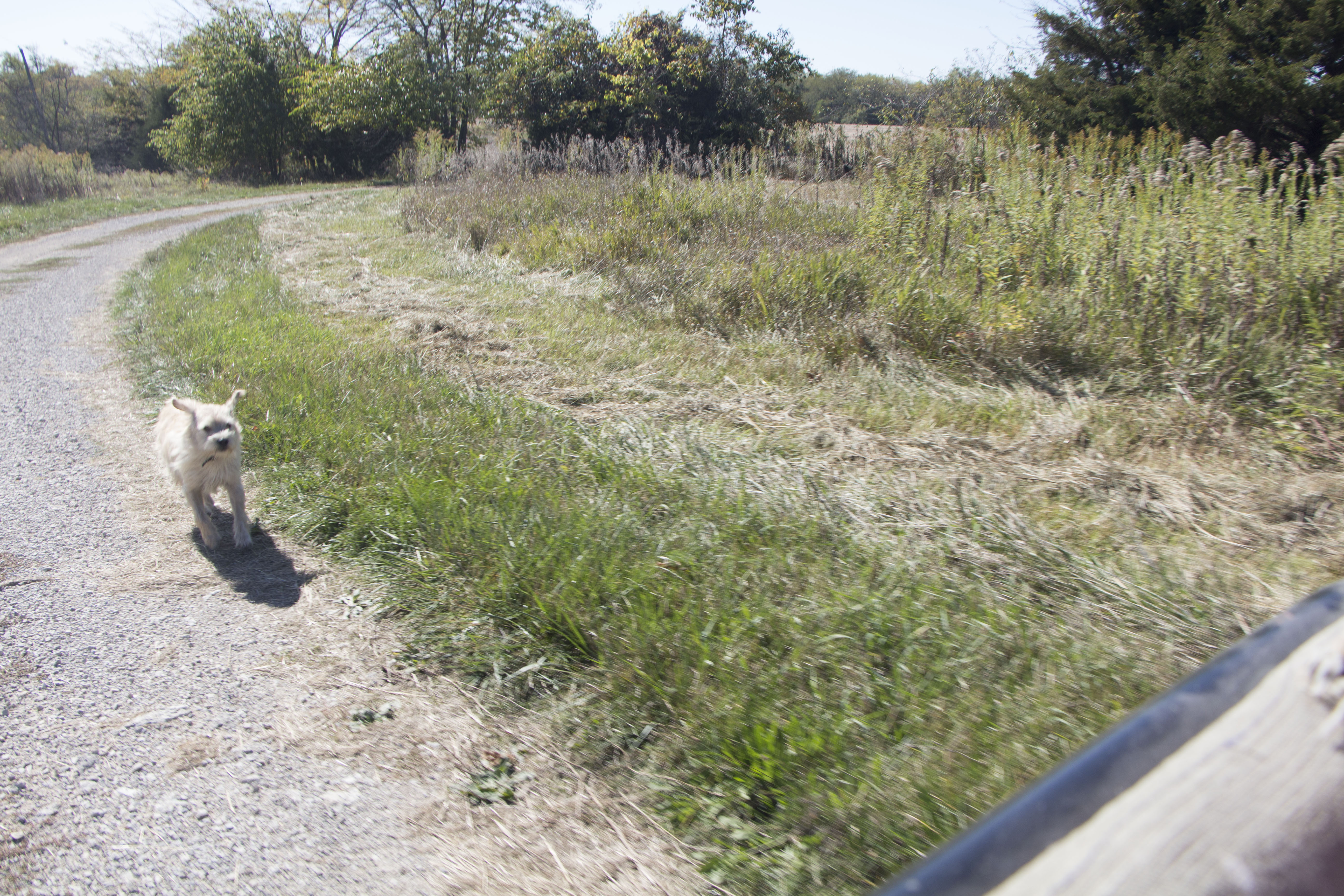
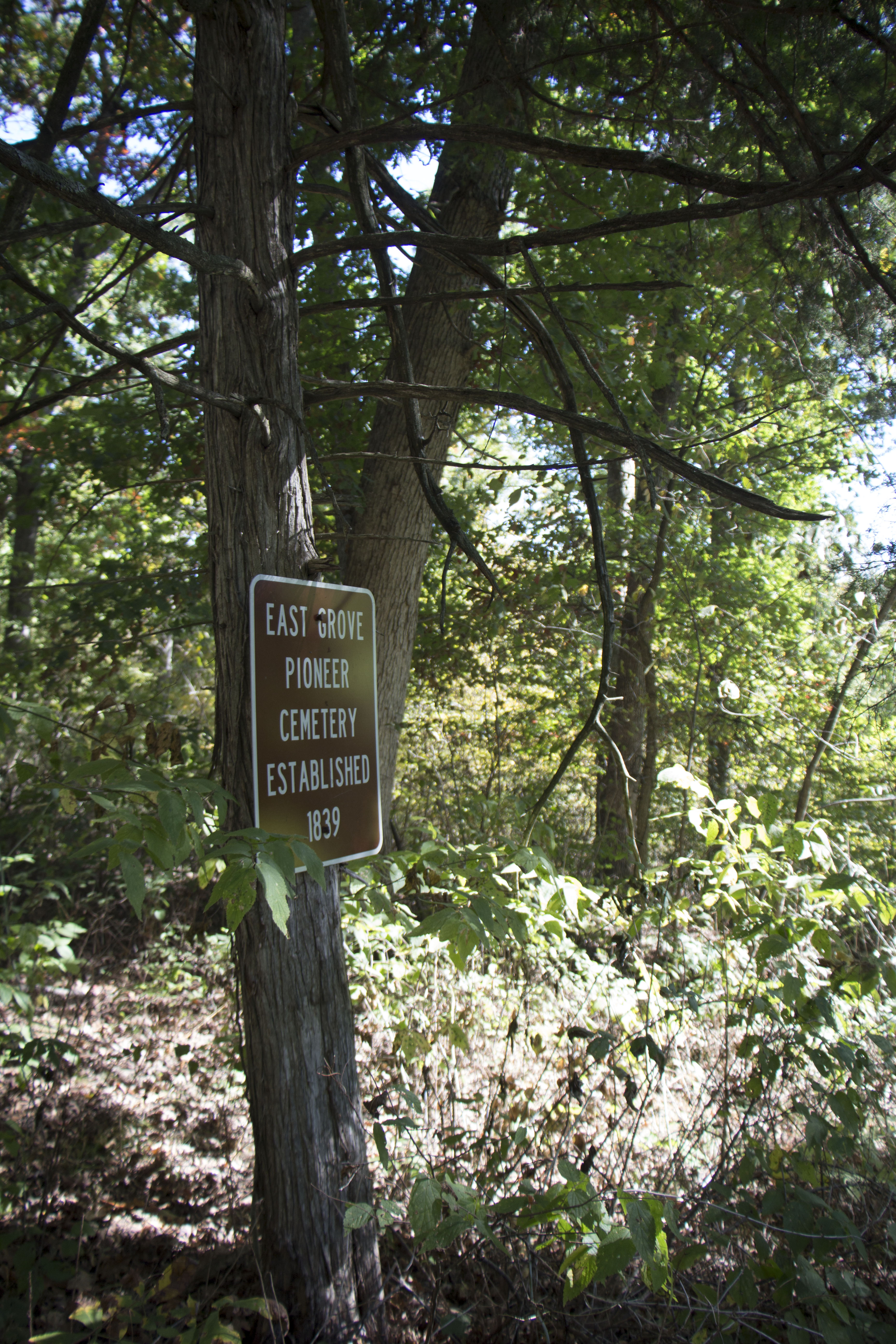
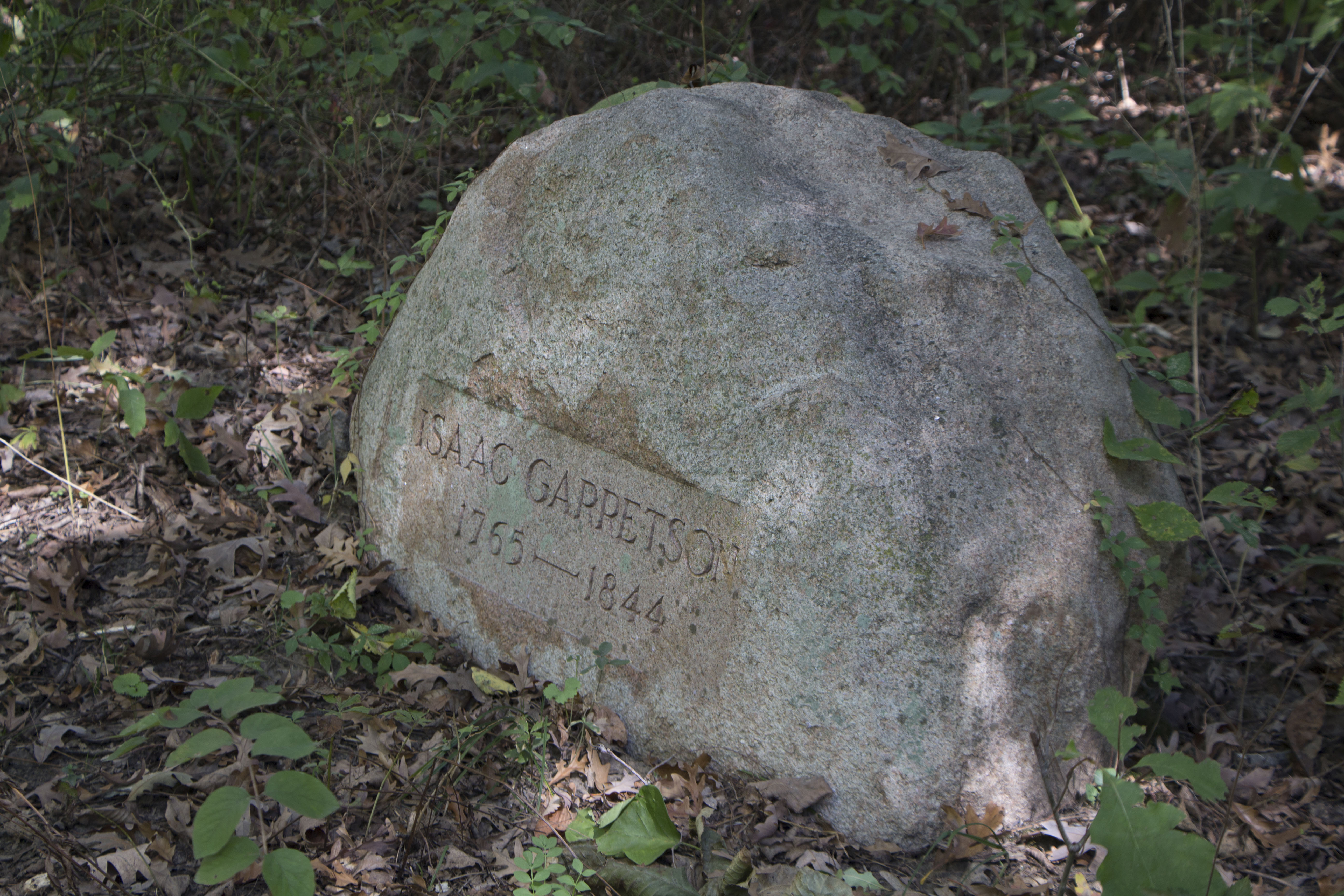
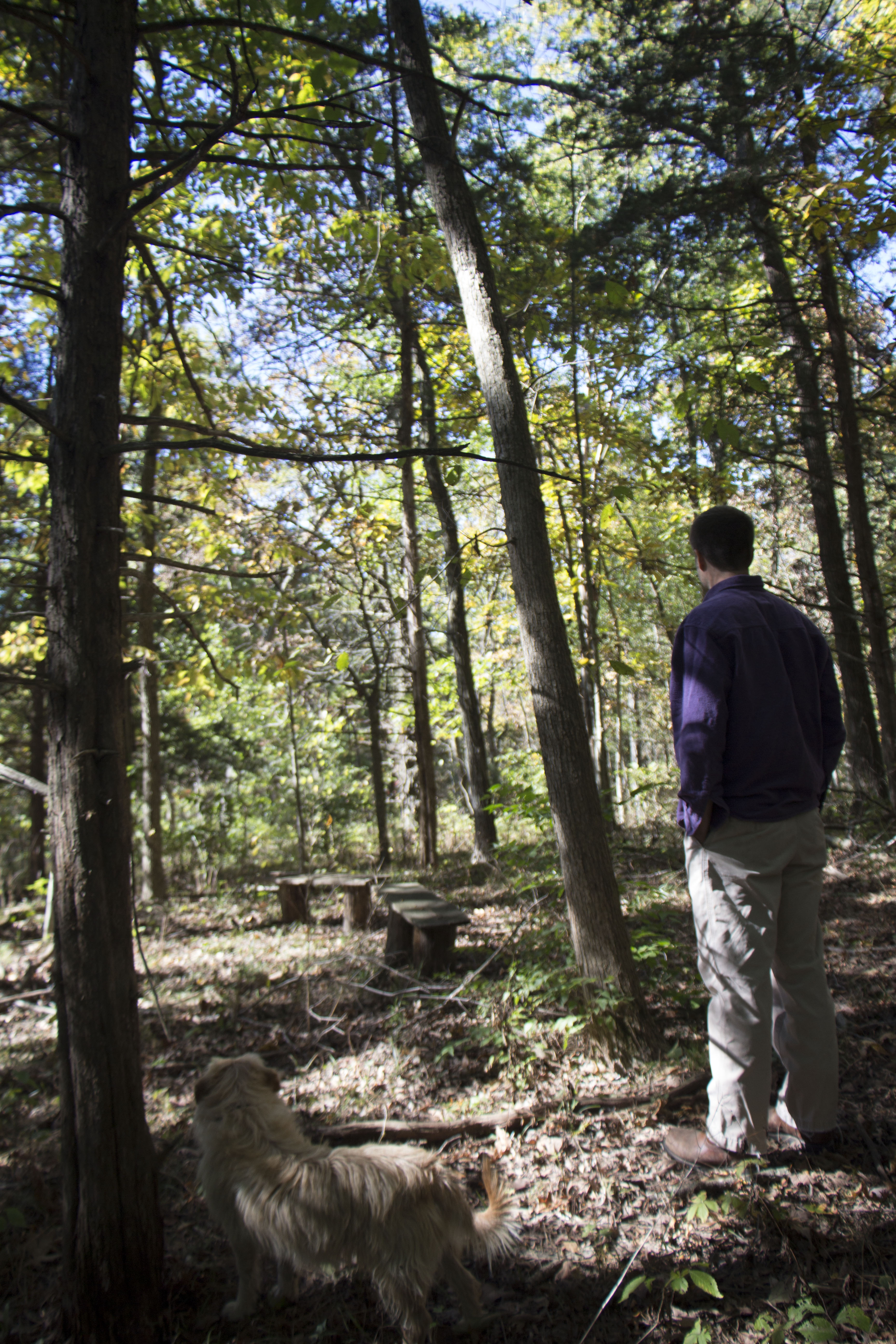
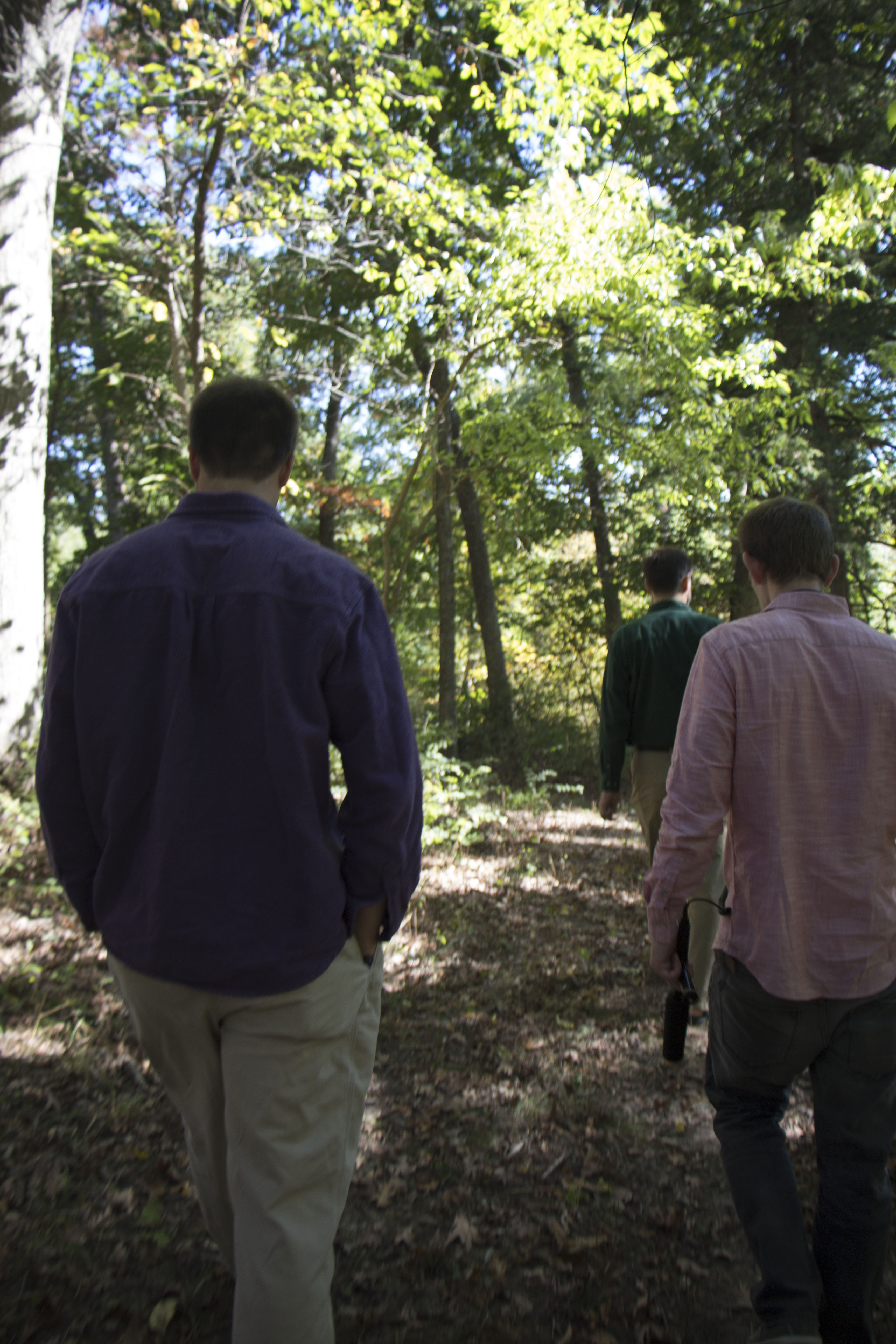
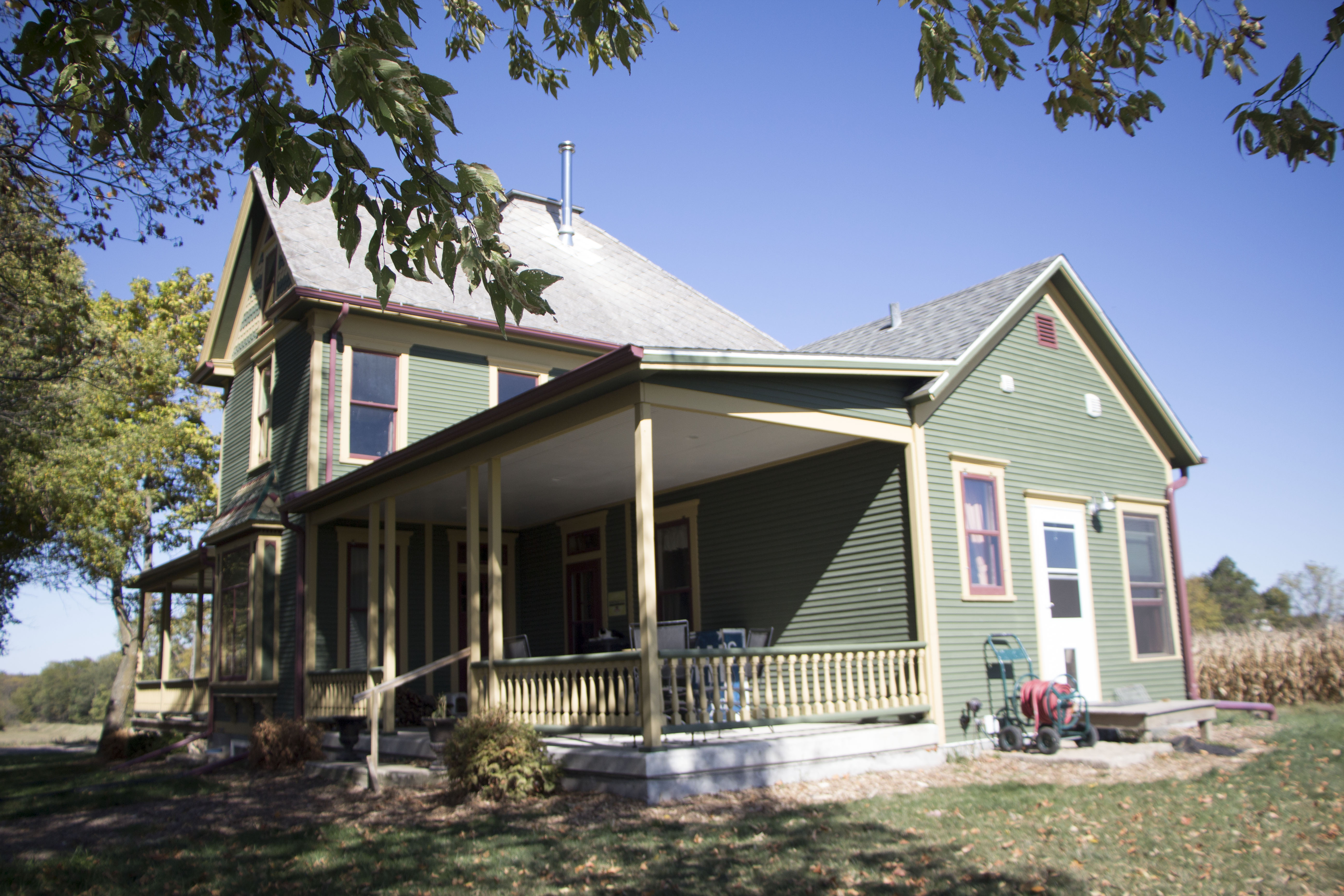
Great article! Loved the pictures too. Always cool to see what’s going on in our own backyard.
Thanks, Adam! We love finding these local treasures and sharing interesting stories. It really makes this all worthwhile.
Dear Garretson,
Jim and I wish you a world of success with your new adventures. And WELCOME HOME!!! I agree no place like IOWA our HOME.
Doris and Jim Onorato